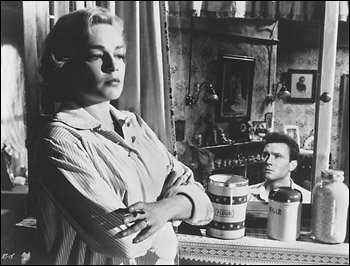Simone Signoret: A Cinematic Icon
Simone Signoret, born on March 25, 1921, and passing away on September 30, 1985, was a renowned French actress and author of Jewish heritage. She is often celebrated as one of France's greatest film stars and was the first French actress to win an Oscar, which she received for her role in "Room at the Top." Signoret was not only an Oscar winner but also a nominee for numerous prestigious awards, including the BAFTA, Golden Globe, Emmy, Cannes Film Festival, and the David di Donatello Award for Best Foreign Actress.
Biography
Simone Henriette Charlotte Kaminker was born in Wiesbaden, Germany, as the first of three children to Georges (known as Senou) and Andrée Kaminker. Her father, a Jewish officer born in Poland, brought the family to Neuilly-sur-Seine, a suburb of Paris, while her mother was of Catholic French descent. Signoret grew up in an intellectually stimulating environment, excelling academically and acquiring fluency in English during her school years. She even earned a teaching certificate. She worked part-time as a journalist for the French newspaper "Les nouveaux temps."
During the German occupation of France in World War II, Signoret began mingling with an aristocratic circle of writers and actors she met at the "Café de Flore" in the 6th arrondissement of Paris. It was during this time that she developed an interest in acting, encouraged by her friends and her lover, Daniel Gélin, to pursue her aspirations. In 1942, she started taking on minor roles in films, earning enough money to support her mother and two sisters after her father escaped to join General Charles de Gaulle in 1940. To protect her Jewish heritage, Signoret changed her family name to that of her mother's before her marriage.
Her sensual appearance and natural talent often led her to play provocative roles. She gained significant recognition for her performance in the 1950 film "La Ronde," which was banned in New York for its perceived immorality. In 1952, she received even more enthusiastic acclaim for her portrayal of another seductive character in Jacques Becker's "Casque d'Or," for which she also won a BAFTA Award for Best Foreign Actress in a Leading Role. Her performance in the film also influenced jazz musician Nina Simone, who adopted her stage name in homage to Signoret's real first name.
Signoret starred in several notable French films, including "Thérèse Raquin" (1953) directed by Marcel Carné, "Les Diaboliques" (1955), and "The Crucible" (1957), an adaptation of Arthur Miller's play "The Crucible."
In 1958, Signoret appeared in the British film "Room at the Top," directed by Jack Clayton, which earned her multiple prestigious awards, including an Oscar for Best Actress and the Best Actress award at the Cannes Film Festival. She was the first French actress to win an Oscar, and she was also the first woman to win an Oscar for a foreign-language film.
While she was offered opportunities to work in American cinema, Signoret declined and continued to work in France and England. In 1962, she co-starred with Laurence Olivier in "Term of Trial." In 1965, she appeared in the American film "Ship of Fools," which earned her another Oscar nomination. She continued to work in several American films until 1969 before returning to France.
Signoret's brief foray into Shakespearean roles occurred on the stage of the Royal Court Theatre in London in 1966, where she played Lady Macbeth opposite Alec Guinness. However, her performance received mixed reviews, with some critics even commenting on her accent, which they referred to as "unreasonable Gaulish."
In her later years, Signoret occasionally faced criticism for gaining weight and allowing her beautiful appearance to fade. Nevertheless, she never sought validation through her physical appearance and continued to deliver remarkable performances. She received acclaim for her portrayal of Madame Rosa, an elderly Holocaust survivor caring for the children of prostitutes in the Parisian slums, in the film "Madame Rosa" (1977).
She also received praise for her role as an unmarried sister who falls in love with her paralyzed brother through anonymous correspondence in the film "I Sent a Letter to my Love" (1980), both of which were directed by Israeli filmmaker Moshe Mizrahi.
In 1978, Signoret authored her autobiography, "Nostalgia Isn't What It Used To Be," and she also wrote a book titled "Adieu Volodya," which was published in 1985, the year of her passing.
Signoret's first marriage was to film director Yves Allégret from 1944 to 1949, with whom she had a daughter, Catherine Allégret, who also became an actress. Her second marriage was to actor Yves Montand in 1951, which lasted until her death.
Simone Signoret passed away in 1985 from pancreatic cancer in Autheuil-Authouillet, France, and was buried in the Montparnasse Cemetery in Paris.
- סימון סיניורהhe.wikipedia.org






